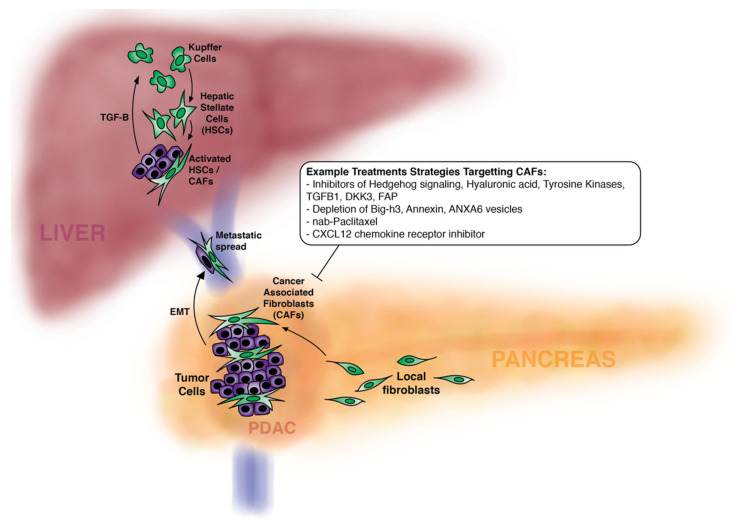Figure 2.
Primary pancreatic cancer recruits fibroblasts to become cancer associated fibroblasts (CAFs). Tumor cells with CAFs invade the portal vein and metastasize to the liver. In order to establish a focus in the liver, Kupffer cells secrete transforming growth factor-beta (TGF-beta) that recruits and activates hepatic stellate cells to become CAFs. Strategies to treat pancreatic cancer through CAFs include inhibitors of the hedgehog pathway, hyaluronidase, tyrosine kinase, and inhibitors of CAF recruitment. miRNAs are a potentially useful strategy because such tools can inhibit multiple pathways, simultaneously. Nab-Paclitaxel has been shown to target pancreatic cancer CAFs. AMD3100, a CXCL12 chemokine receptor inhibitor, shows improved immune response/immunotherapy response to pancreatic cancer—CXCL12 is secreted by CAFs.

